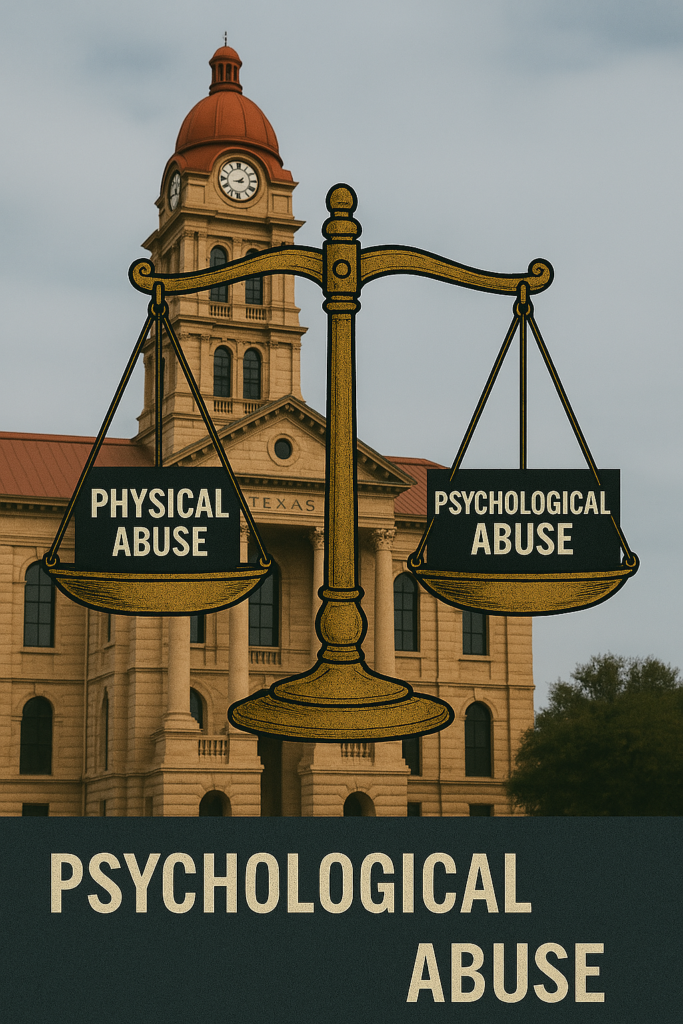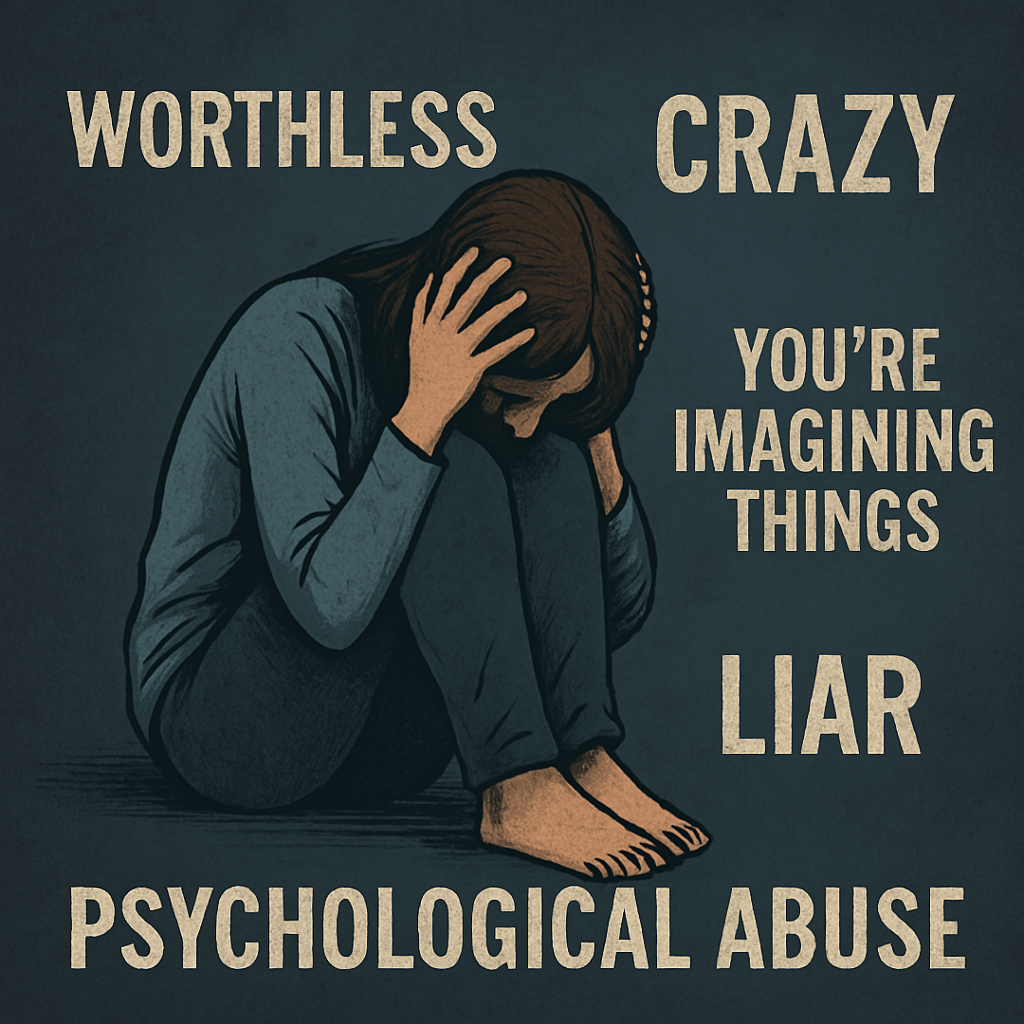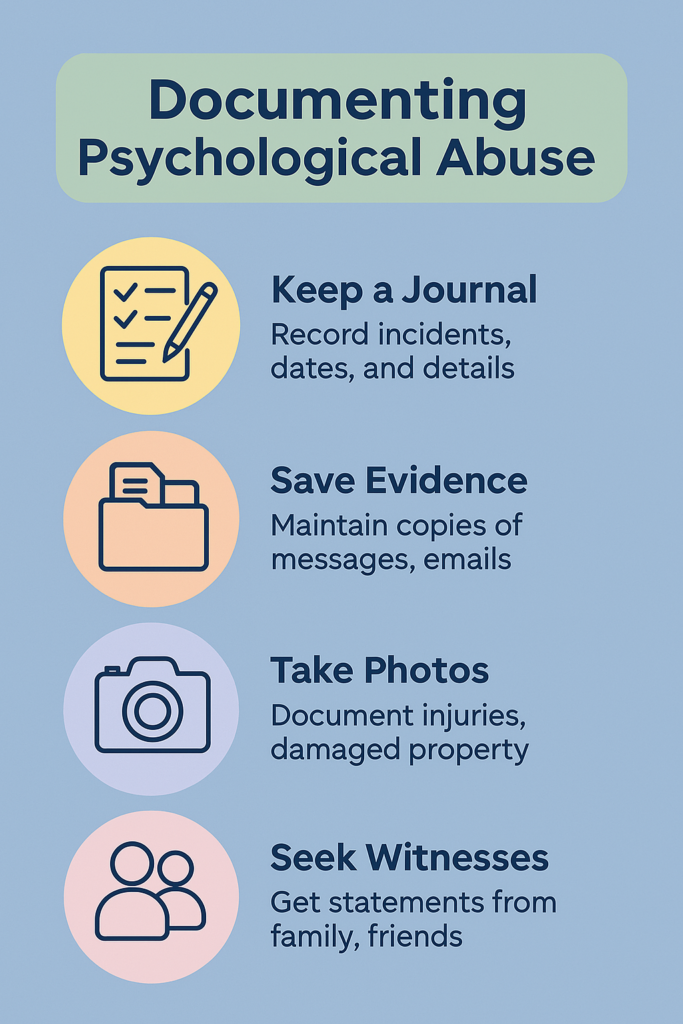Disclaimer: This post is for educational purposes only and does not constitute legal advice. If you or someone you know is in danger or needs legal help, please consult an attorney or contact the appropriate authorities.
When we hear the word “abuse,” many people think of visible bruises or physical violence. But what about the deep, invisible wounds caused by emotional and psychological abuse?
If you’ve experienced threats, manipulation, gaslighting, intimidation, or coercive control, it’s important to know that you are not alone — and your pain is valid. As a therapist and someone with lived experience, I often hear from clients who wonder whether the law recognizes what they’ve been through.

The answer? Yes, psychological abuse can be taken seriously under Texas law — but the path isn’t always straightforward. Let’s explore what that looks like.
What Counts as Psychological Abuse?
Psychological or emotional abuse includes:
Verbal insults and threats
Manipulative behaviors (e.g., gaslighting, guilt-tripping)
Controlling actions (e.g., isolating you from loved ones, controlling finances)
Persistent intimidation or fear-based tactics
Withholding affection or resources to punish you
While these behaviors don’t leave visible scars, they can deeply damage a person’s mental health, sense of self-worth, and physical well-being.

What Does Texas Law Say?
Texas law doesn’t have a single statute labeled “psychological abuse,” but several legal protections can apply:
1. Family Violence Laws
Under Texas Family Code §71.004, “family violence” includes:
> “…a threat that reasonably places the member in fear of imminent physical harm.”
So, even if no physical violence occurs, credible threats and coercive behavior can meet the standard for family violence, which can lead to protective orders.
2. Protective Orders
Judges in Texas may issue protective orders based on emotional abuse, especially when it’s:
Ongoing or escalating
Directed at a vulnerable adult or child
Supported by texts, voicemails, witness accounts, or other evidence
3. Child Custody and Emotional Harm
Texas courts must always consider the best interest of the child. If emotional abuse is present — whether aimed at the child or used to manipulate a parent — the court may limit custody or visitation rights.
4. Protection for Vulnerable Adults
If someone is disabled or elderly, they may be protected under Adult Protective Services. Emotional abuse in these cases — including gaslighting, manipulation, or threats — can be reported and investigated.
5. Harassment and Stalking Laws
Persistent verbal abuse, threats, or surveillance may qualify as:
Harassment under Penal Code §42.07
Stalking under Penal Code §42.072
Why It’s Still Hard to Prove
Unlike physical violence, psychological abuse often happens behind closed doors and leaves no clear evidence. That’s why documentation is key:
Save text messages and emails
Record voicemails (if legally allowed)
Keep a journal of incidents with dates and details
Let a trusted therapist or professional know what’s happening

Healing Is Possible — You Deserve Peace
Whether or not you pursue legal action, acknowledging emotional abuse is the first step toward healing. Therapy provides a safe, nonjudgmental space to rebuild your inner strength and reconnect with your worth.
Remember: What happened to you matters. You don’t have to prove your pain to deserve support.
Resources:
National Domestic Violence Hotline | 1-800-799-SAFE (7233)
If you or someone you love is experiencing emotional abuse, you’re not alone. Help is available — and healing is possible.

